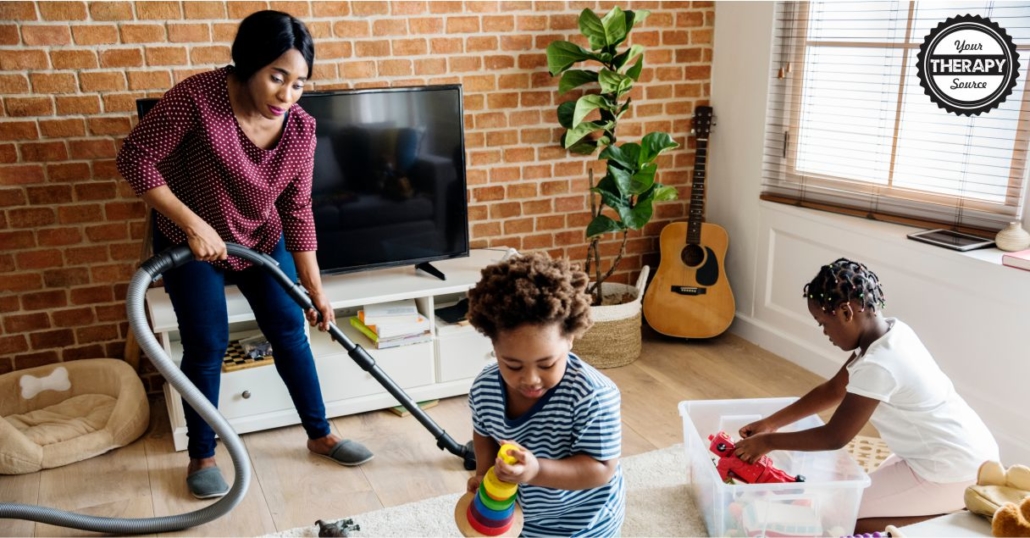Attention Deficit Hyper Disorder (ADHD) presents numerous problems for children diagnosed with it, as well as those involved in their well being and the problems stretch across environments beyond home, such as the classroom. The challenges may seem like they are limited to affecting academic and personal milestones but they are interlinked with,

Social difficulties that often go unnoticed
⦁ Children with ADHD often miss out on social cues from teachers and peers, and may find it difficult to form meaningful bonds. This results from their lack of focus and limited memory retention.
⦁ They may find it difficult to maintain the decorum and follow the norm of certain social settings since they require greater levels of stimulation. For example it may be difficult to perform one single activity in the classroom for a greater duration of time along with peers and cooperate with teachers.
⦁ Participation and cooperating in groups can be a struggle since children with ADHD are impulsive in decision making and may not make favorable choices for themselves and their peers. For example challenges like sports and dance that require team members to be on the same page and make thought out reasonable choices.
⦁ They are prone to lowered self esteem and feeling behind in comparison to their peers, due to limited executive functioning skills. This refers to their ability to plan, set and meet goals and follow multiple set instructions while also staying focused. In the real world this struggle can be shown mostly in completing assignments, meeting deadlines and understanding concepts.
⦁ Children with ADHD have a low frustration tolerance, and this can cause them to indulge in intense maladaptive behaviors such as crying outbursts, breaking things, or creating a mess. This occurs due to inability to emotionally regulate and can feel overwhelming to deal with tasks such as assignments, preparing for a test or group projects.
⦁ Difficulty in practicing compassion, and trust in one’s own abilities is a common occurrence for kids with emotional dysregulation. That is because their emotional motivators are stronger than cognitive reason and logic. In the real world this may manifest in the form of lashing out, disengaging with the situation, or an overwhelming melt down. This can be caused by situations such as disagreements with peers in the playground, or inability to complete a task in the class.
⦁ This lack of regulation often makes them sensitive to external disapproval or rejection, for example failure on a test or scolding from an authority figure can demotivate them or cause a meltdown when they get home. This is because their cognitive resources get drained when overwhelmed with such situations.

Fun activities to engage children and develop better social skills!
⦁ Role playing refers to acting out scenarios with your child that can occur in the real social world, allowing them to observe and understand the appropriate responses across multiple situations.
-For example, engaging in a dialogue that plays out the situation of disagreement with a peer, and modeling the ways to attend to the feelings that surface and rational ways to respond.
-You can appreciate them for appropriate responses and provide feedback on other ones that may not be helpful behaviors.
⦁ Gamification is the process of incorporating productive methods of learning and improvement with play, making it a more stimulating experience and engaging the user for longer periods of time.
-Games are emotionally rewarding and are an activity that children truly enjoy, hence it is likely that they remain interested in it for longer periods of time, as compared to traditional therapies that focus on cognitive techniques.
-It is the basis of WonderTree’s philosophy, of making such play therapy activities for ADHD, conveniently accessible for those in need.
⦁ Make a skill board, and let them do more of what they are good at– You can bond over a fun activity of making a colorful skill board, listing everything that they are good at.
-Allow them to do more of those activities around the house or classroom such as setting the table, arranging books in the library, or cleaning up after lunch break.
-Give them a reward such as a star on the skill board or a sweet treat they enjoy every time they engage in these activities.
⦁ Listing “what can I look forward to”- Spend some time with your child once a week evaluating the things that they look forward to in their routine instead of the things that cause worry.
-You can put this list up in a visible place such as the bathroom mirror, the fridge or somewhere close to their school table.
-Listing such things, shifts focus to the rewarding parts of the day instead of the overwhelming ones, and it is even better if the rewards are after the activity that causes worry.
-For example, art class right after math or feeding the fish right after completing the homework.
Taking a closer view at the scientifically effective therapeutic techniques plugged into play, we come to understand the,

Social Skills Developed by engaging in such activities
Better identification and understanding of social cues.
⦁ The main focus of therapy for ADHD lies on focus, attention and memory and these skills are essential for social and personal progress.
⦁ For example through role playing and gamification, children can understand, remember and successfully follow instructions or social cues given by caregivers, educators and conversations with peers in the social environment.
⦁ This is because they have learnt appropriate ways to interact with people around them through feedback and have developed better focus through virtual rewards in online games.
⦁ Games that can improve these skills: ⦁ Brain Grub is a great game for practice, since the challenge at hand is to match similar objects on flashcards, by flipping them over for a short amount of time. The more they successfully match, the greater the virtual reward, motivating them to remain engaged.
Less difficulty cooperating in teams, and resolving challenges.
⦁ Due to the skill board, children can feel less overwhelmed when presented with challenges and have more confidence in their ability to be a valuable member of teams. For example, willingly volunteering to help their peers clean up the class before going home or taking initiative in suggesting possible strategies to win a game of tag.
⦁ Role playing and practice through online games can help them reduce impulsivity in decisions, and can help them gain more autonomy over rational thinking rather than emotions. For example, they can patiently raise their hand and wait for their turn to answer, or can wait for the ball to reach their side of the ground during a game of football. This is because they have been rewarded for using logic and have failed to complete game challenges when they acted on impulse.
⦁ Games that can improve these skills: Bubble Pop challenges kids to pop as many bubbles as possible under a time limit, but differentiate between bubbles and red bombs that result in penalties.
⦁ This makes them analyze the situation and think patiently since they are being rewarded for self control and strategizing.
Improved self esteem and sense of individuality
⦁ Educational and personal improvements are interlinked with a child’s overall self esteem and their social success, and play therapy activities for ADHD often miss out on this aspect of improvement.
⦁ The skill board makes them more aware of their capabilities and can motivate them to be more socially responsible, boosting their sense of individuality in the social world. For example educational strengths like reading or personal ones like helping set up the table or helping the teacher carry her books.
⦁ Identification of rewards through what they can look forward to,verbal appreciation and virtual rewards in games allows them to stay motivated and makes them feel as valued as their peers.
⦁ Improved ability to follow academic instructions such as meeting assignment deadlines and achieving goals through gamification, enables them to move at the same pace as their peers, and achieve the same milestones as them.
⦁ Gamification develops trust in their abilities since it is a space of personal control and decision making.
⦁ Games that can improve educational skills: ⦁ Alphabet Trace (In Urdu, English and Arabic), Number Trace, and Shape Trace are games that allow kids to practice writing by tracing with their fingers, and improve muscle and visual memory of concepts.
Better patience levels and feeling less overwhelmed.
⦁ The technique of “what to look forward to” boosts participation in activities such as class discussions, sporting events or simply conversations during lunch break since children have in mind the interesting parts of the day that follow the difficult ones.
⦁ Due to praise by caregivers in role playing and virtual reward through games such as those developed by WonderTree, children remain engaged and motivated.
⦁ They seek more of those rewards by engaging socially and being more patient around people.
Conclusion
Thriving in social settings can often be stressful and challenging for both the individuals and caregivers. Traditional therapy for a child with ADHD, and pressure to improve both can be a bit overwhelming and not stimulating enough to keep them engaged in the long run. For this reason, use of fun therapeutic techniques such as gamification provides them with an opportunity to develop their social skills more comfortably, reducing the pressure. It feels less of a tough task, instead an interesting and engaging activity that they enjoy, and caters to a wide variety of skills instead of fixating on one, like we discussed above.
Accessing WonderTree’s games for children with ADHD is way more convenient in terms of time and accessibility, and starting your child’s journey to social success is just a click away! So wait no more, and allow your child to dive into the vibrant world of challenges, carefully designed to improve their social skills, so that they can achieve their true potential.






